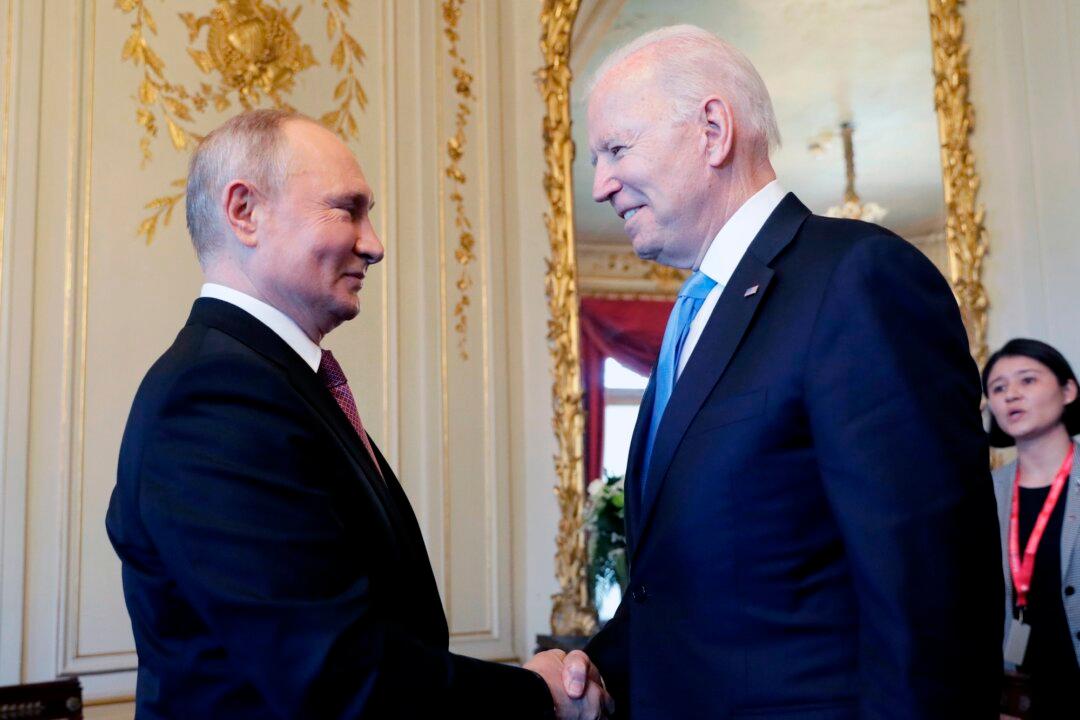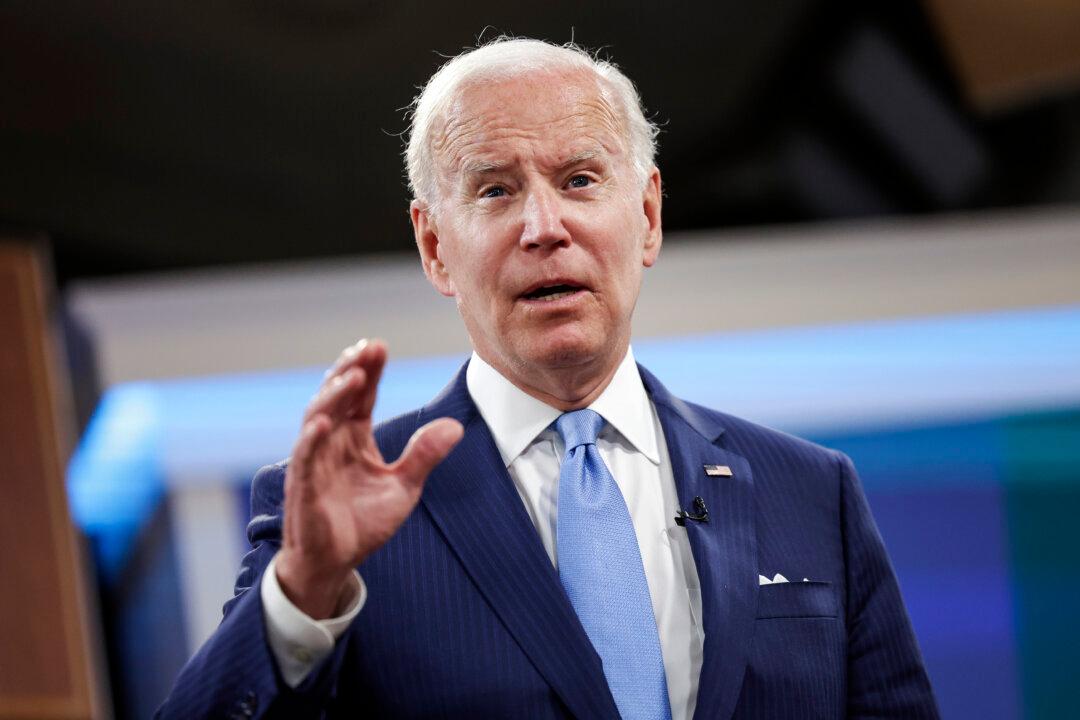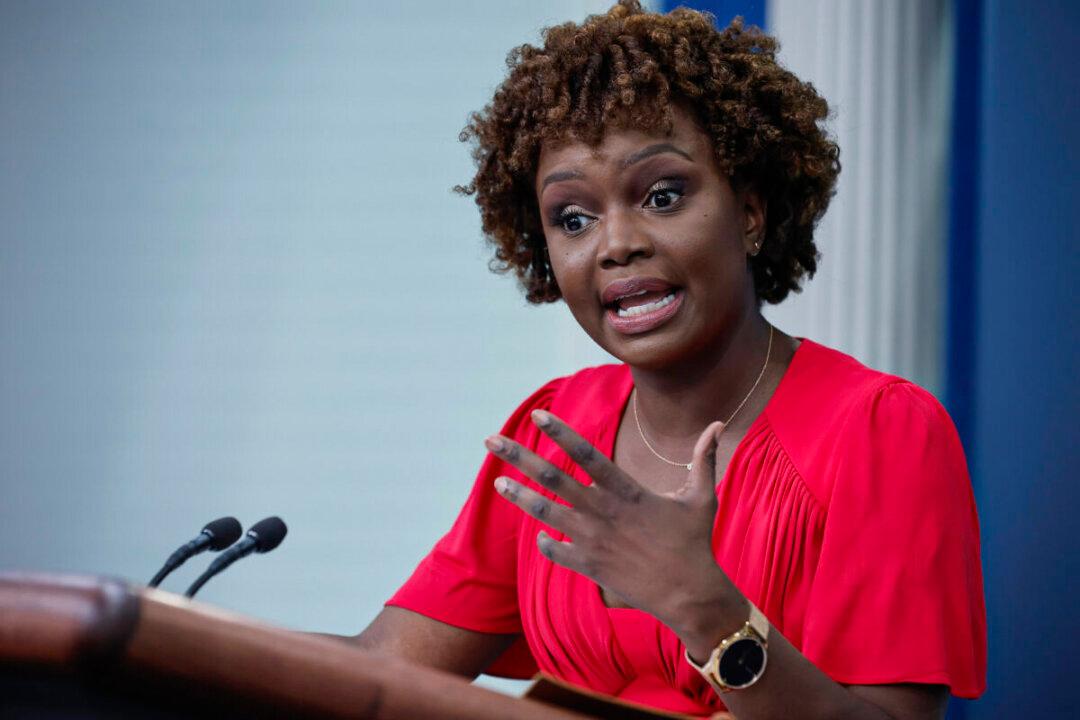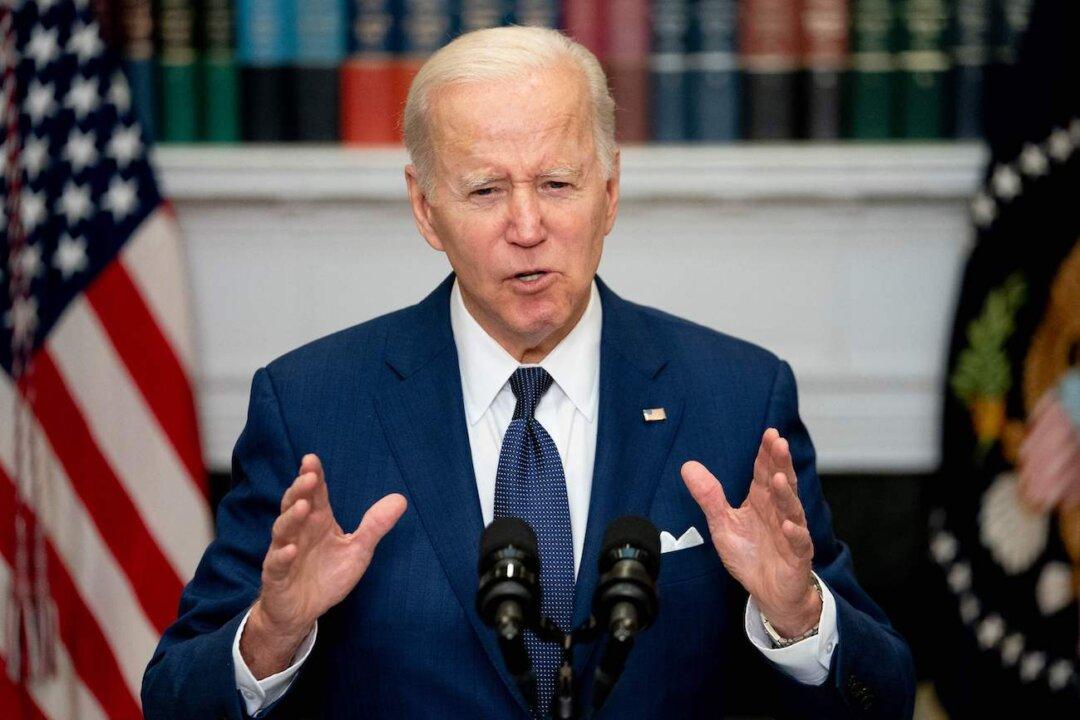White House officials say the Biden administration is considering the possibility of a phone call—between President Joe Biden and President Vladimir Putin—to address the massing of Russian troops at the border of Ukraine.
Ukrainian officials have estimated more than 90,000 Russian troops are near its border and in Russian-occupied Crimea.




